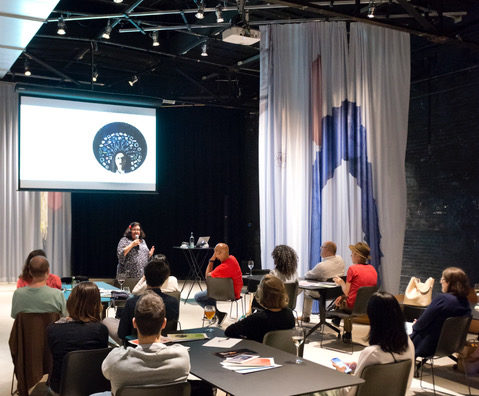Humans in the digitalised age: threat or opportunity? What shall we do when machines replace people’s jobs? The debate has been around for a while, but the unemployment generated by the pandemic has skyrocketed concerns about the future of the human workforce.
Our daily life is changing quickly, in surprising ways.
Many jobs are disappearing, and we realize that we shall unlikely return to normal. Out of necessity for safety and distance, we are fast-tracking the implementation of digital smart solutions. Beyond the macroscopic evidence of virtual office or education, the world, as we know it, is already irreversibly shifting everywhere around us. Just think of grocery shopping: online orders increase, so some supermarkets close or replace cashiers with scan-and-go check-out stations, while fully digitalised distribution centres opt for block-chain solutions to increase speed, transparency and no-human-error accuracy. We knew it was coming, but we now see it is all coming up very fast.
At the dawn of a new era of technological progress, perturbed by the economic crisis, the dilemma Man vs Machine shows up again, with the legitimate fear that many will lose employment opportunities.

The great opportunity: digitalisation offers new ways to collaborate
The present change, though, doesn’t need to cause actual fear. It can be the greatest opportunity ever, and we should invest in education to make the most of it. “We will certainly need to change, learn and adapt. Many think that this is scary. I am more optimistic” tells us Laura Lozza, Managing Partner at Grooa “I see it as an opportunity.”
She has recently shared some of her ideas at the Eindhoven Innovation Cafe, stressing that: “The ease of the virtual space allows more people, like decentralised teams, to participate in decision-making, making invisible work suddenly visible. Also, collaborative platforms open global access: we can crowd-source in all areas, especially innovation. At Grooa, we specifically focus on Innovation Leadership.”
The digitalisation of work? Yes, but with human competencies, because where innovation exists, there will always be the need for human judgment. “Machines will never replace people because they cannot be creative or ethical: demands to supervise machines will make us rethink work” Laura explains “and, crowd collaboration on digital platforms will enhance the importance of effective interpersonal skills.”
The one positive thing that the pandemic has given us is growing digital connectivity. It is now easier than ever for people to collectively contribute — whether with ideas, time, expertise, or funds — to a project or cause. This collective mobilisation is crowdsourcing. Crowdsourcing means engaging a ‘crowd’ or group for a common goal — often innovation, problem-solving, or efficiency.
The future is human-centric. This new way of doing things – crowdsourcing, crowdfunding, co-creation, collaboration, and open innovation – is challenging business models, leadership styles, offering an immense opportunity to rethink and reinvent conventional processes.
The key to success
Human collaboration and the ability to acquire new knowledge will be fundamental, and The Grooa Academy is entirely dedicated to Innovation Leadership, that require courageous dialogue, clear judgment and strong co-operation capabilities.
Did we make you Curious?
Here is the link to register for the course ‘Social skills for Innovation Crowd Sourcing’. And Eindhoven News subscribers can benefit from a special promotion code EN for a 50% discount!
This is sponsored content from Grooa
















